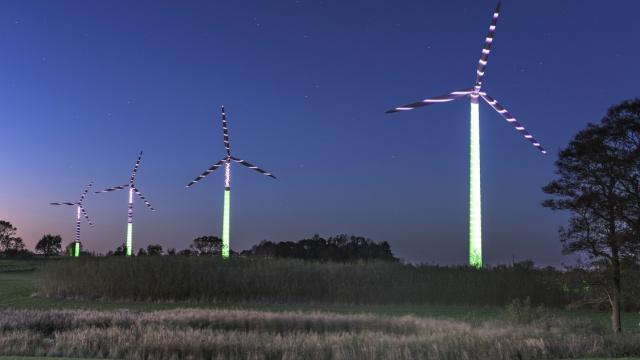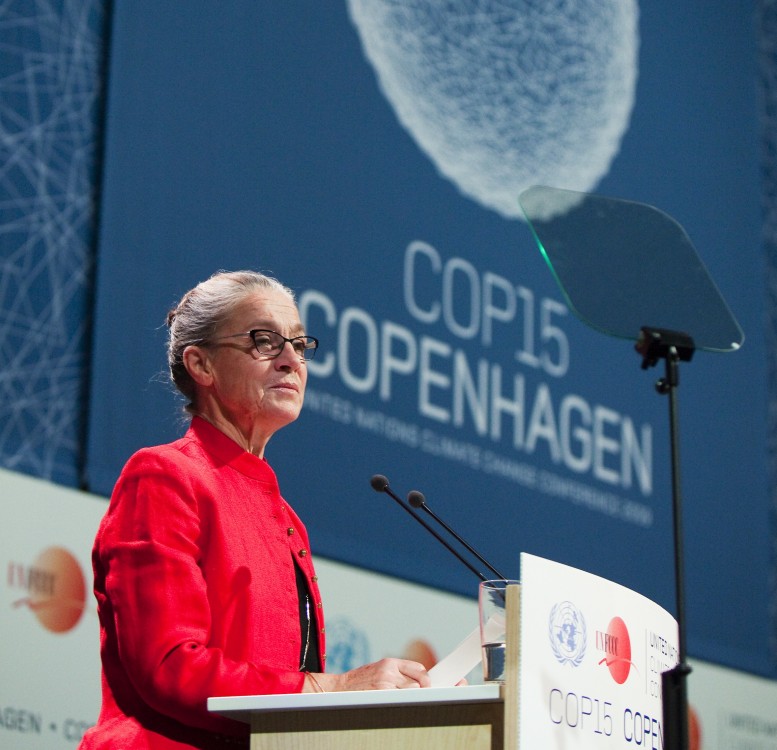
Germany has been credited for paving Europe’s way to a renewables-led, zero-carbon future. But the world’s true climate champion is Denmark, which has just set the bar another notch higher than Germany by proposing to accelerate its phase-out of coal-fired power plants. Denmark could be coal-free by 2025 — five years ahead of schedule — and generate more than 70 percent of its energy from renewable sources.
The small Nordic nation of 5.6 million strives to be completely fossil-free by 2050, including even its transportation sector. Yet in pursuing such impressive goals, Denmark could stoke Germany’s prodigious coal use — the Achilles’ heel of its heralded Energiewende (clean-energy transition) — to make up for shortfalls in the Danish market. In order to make Denmark’s green energy policies worth emulating, this must be avoided.
Danish Lessons
There is much that the rest of the world, even green Germany, can learn from Denmark’s progressive energy policy, especially its determination to kick the coal habit. Denmark, for example, has been at the forefront of wind power innovation since the 1890s, when one of its leading scientists, Poul la Cour, began testing turbines. After World War II, Danes realized that wind was one energy resource that it had in abundance and always would. (Denmark has moderate gas and oil reserves in the North Sea.) In 1956 one of la Cour’s protégés invented the three-rotor turbine, which remains, in essence, the preferred model around the world.
Denmark was one of the few countries that fully absorbed the lessons of the 1973 energy crisis and acted on them. Nearly 90 percent dependent on imported oil at the time, Copenhagen identified renewable energy sources and reduced oil consumption with the aim of securing a greener, more stable energy supply. In 1985, a year before the Chernobyl nuclear disaster, Denmark prohibited nuclear power and started investing heavily in renewables and in more efficient energy transmission and heating infrastructure.
By the 1990s, Denmark set high-end goals for renewable energy production and climate protection, using subsidies, green taxes and a certificate program. The state offered tax exemptions to households for producing their own electricity, which prompted a wave of backyard tinkering and small-scale wind power projects. Danes could purchase a turbine from local retailers or buy shares in community-based wind turbine cooperatives. By 2004, more than 150,000 Danes belonged to renewable energy cooperatives or owned turbines.
Wind power is the cornerstone of Denmark’s renewable energy production as well as a key export industry. Larger commercial wind parks with larger, more advanced turbines have gradually over taken the household model. Danish manufacturers such as Vestas and Siemens Wind Power sell turbines around the world. Today wind from the gusty coasts and hinterlands — along with a handful of other renewables —account for 43 percent of Denmark’s electricity and nearly a third of the country’s energy needs.
Denmark has Europe’s highest electricity prices. But wind energy enjoys broad public support. Some 96 percent of Danes support the government’s plan to expand the wind industry, and 85 percent are tolerant of such expansions even into their residential areas.
Another key component of Denmark’s feat is district heat networks, giant boilers that generate heat for entire neighborhoods and distribute it through a network of underground pipes. Most Danes don’t own household boilers, as Germans tend to, but have communitywide, superefficient boilers that pipe hot water to homes in a given district. The networks capture and redistribute surplus heat from factories, power stations, public transportation systems and geothermal sources. As a result, heating is cheaper, highly efficient and low carbon.
Denmark now exports both oil and renewably generated power. Since it began transition to renewables and district heating, its economy has grown by 78 percent — rebutting claims that shifting to clean energy imperils prosperity.
Truly Coal-Free?
As much notoriety as Germany has received for its energy reforms, it is a distant, parochial second best to its northern neighbor. Since 2011, when German Chancellor Angela Merkel committed her government to going renewable after Japan’s Fukushima nuclear plant meltdown, Germany’s coal generation and carbon emissions have risen. Unless it takes dramatic steps soon, Germany will miss its 2020 target of reducing greenhouse gas emissions by 5 to 8 percentage points.
To be fair, Germany’s self-proclaimed goal is still twice as ambitious as the target set by the European Union overall. That high mark appeared to be in sight until three years ago, when emissions began climbing again. That is not the only problem. Despite championing the Energiewende, Germany does not have a master plan for phasing out black coal and lignite, which generates 45.5 percent of its electricity. This has made the Energiewende an easy target for critics.
Domestic politics bear part of the blame. Germany’s Minister for Economic Affairs and Energy, Sigmar Gabriel, a Social Democrat, is protecting the dying coal industries in Germany — bastions of traditional center-left voters. He is blocking initiatives by his counterpart in Merkel’s government, the environment minister, who wants to develop a plan for phasing out coal production and use.
A recent report by the United Nations Intergovernmental Panel on Climate Change has warned about “irreversible and uncontrollable” consequences of climate change should the global temperature rise by more than 2 degrees Celsius. This has upped the pressure on Merkel, who may now decide to enter the fray. Action from the chancellor could change the situation overnight — for example, she shut down a third of Germany’s nuclear reactors after Fukushima. As her ministers clash over a common energy strategy, Merkel might pull another Fukushima-like U-turn and end Germany’s sordid romance with coal.
If Denmark goes through with the current proposal, it must not ditch coal in a way that simply transfers emissions from Denmark to Germany. Danish energy experts such as the Danish Energy Association’s Anders Stouge say a quick exit from coal should not force Denmark to import electricity from Germany’s coal-fired plants in order to compensate for energy shortfalls currently covered by domestic coal-fired power stations.
But Denmark could avoid this scenario by investing more in electric car batteries and hot water reservoirs — technologies that could store surplus wind-generated power — while it replaces coal with biomass-fired power plants. It’s an expensive proposition, but ultimately a coal-free Denmark would be a beacon not just for Germany and the rest of Europe but also for a world gradually coming to grips with the reality of climate change.
3 WAYS TO SHOW YOUR SUPPORT
- Log in to post comments












